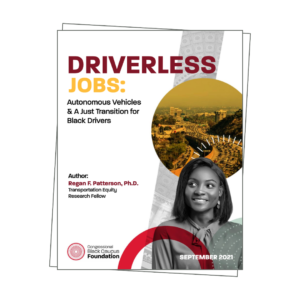Autonomous, or self-driving, vehicles are an emerging and disruptive technology that will restructure society. Autonomous vehicles have major implications not only for mobility, but also land use, the built environment, air pollution, health care, automobile insurance, identification cards, policing and the criminal (in)justice system. Moreover, autonomous vehicles will profoundly impact employment in transportation.
Widespread adoption of autonomous vehicles is expected to begin in 2030, and they are predicted to become ubiquitous in the 2040s.’ Billions of dollars are being invested annually to bring autonomous vehicles to market.23 Several testing fleets are already in operation. Tech companies, vehicle manufacturers, suppliers, and academics are all working on autonomous vehicle technology. Until recently, development of this technology was largely funded by public dollars.
Now is the time for public policy to get ahead of the imminent introduction of autonomous vehicles. Public policy will shape the impact of autonomous vehicles and determine stakeholder benefit. One group that is particularly vulnerable to this technological innovation is people who work as drivers. African Americans rely on driving jobs more than any other racial or ethnic group. Thus, without proactive public policy, widespread adoption of autonomous vehicles has the potential to economically devastate the Black community. This outcome, however, is not an inevitability.
 PAVE US
PAVE US PAVE EUROPE
PAVE EUROPE PAVE UK
PAVE UK

